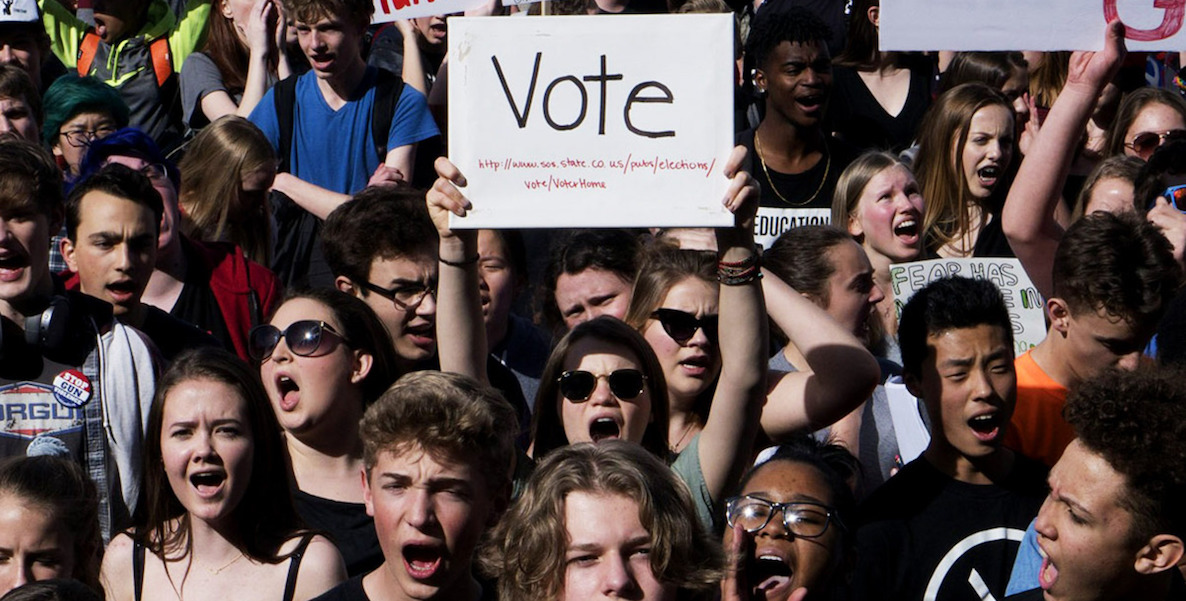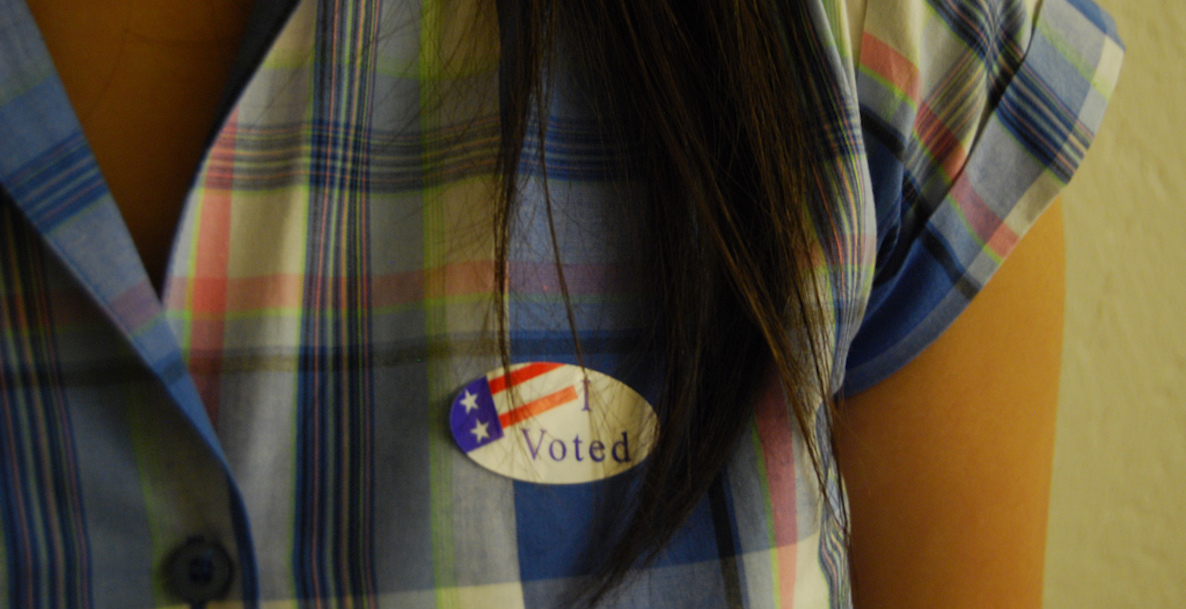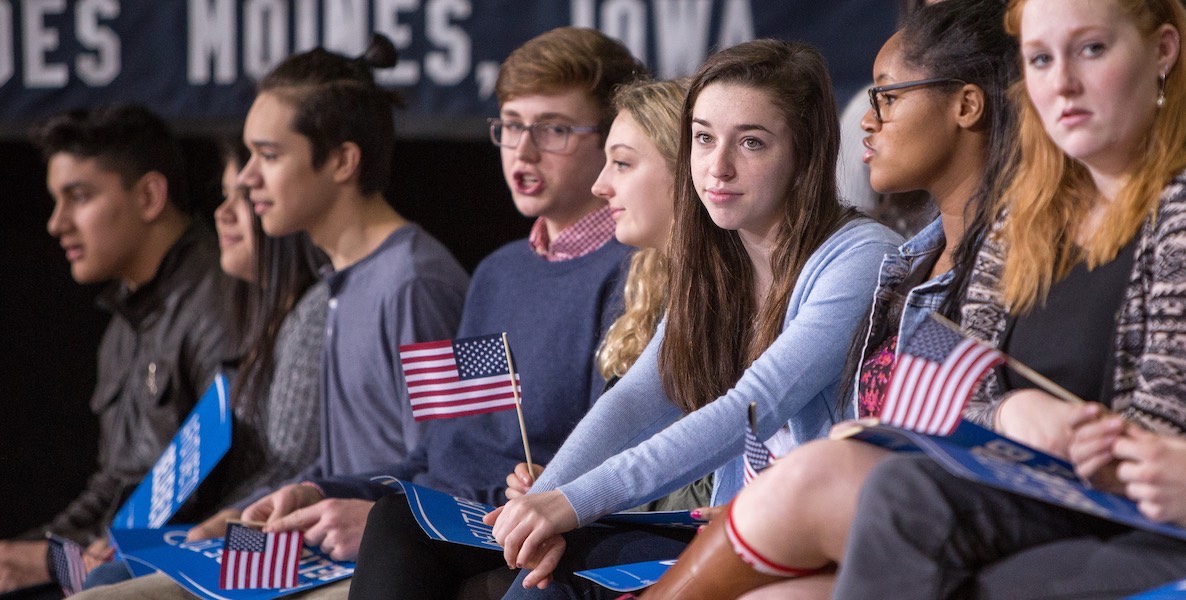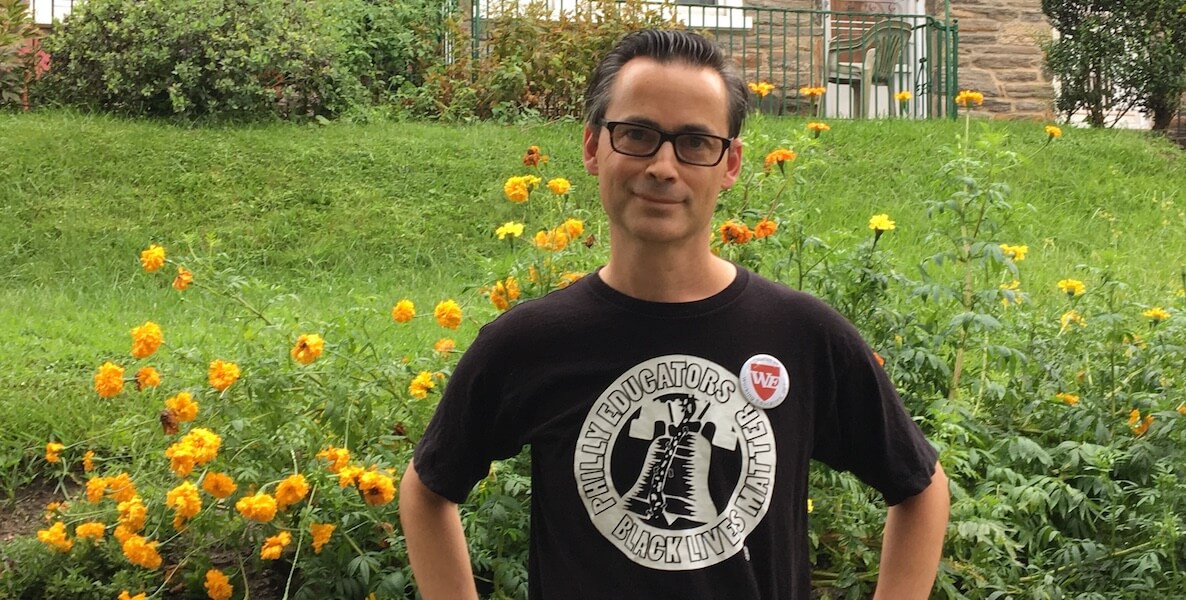Thomas Quinn first pulled an election lever in 1988, when he was an 18-year-old freshman at Temple University—the first time he was eligible to vote. It was not a particularly memorable moment for him, and it was not a particularly successful one either: A registered Democrat, Quinn cast his vote for Jesse Jackson, who went on to lose the primary.
Be Part of the Solution
Become a Citizen member.But the voting stuck. And now Quinn, the chair of Central High School’s social studies department, is leading a citywide effort to pass on the importance of voting to a new generation of 18-year-olds.
Through the Caucus of Working Educators—an activist coalition within the Philadelphia Federation of Teachers—Quinn is directing Philly Youth Vote, an effort to register every eligible high school senior in the city. So far, the group has recruited teachers in nearly 35 district schools who have volunteered to get registration information and forms into the hands of any of the 12,000 seniors who will be 18 on November 6th. (Another 11 schools still need leaders.)
![]()
“Voting is something students are aware that they should do,” Quinn says. “But I go to the polls, and it’s almost all old people, with very few younger people. What is it that’s stopping them? As teachers we’re in a perfect position to reach kids, when they’re learning about government, about to go to college or to work, and are first eligible to vote.”
Quinn has authored a step by step guide for the teachers, which includes instructions on how to sort students by birthdate to find those to target; how to download paper registration forms; and how to start a classroom conversation around voting. He will also send to any teacher a stack of registration forms through the School District’s internal postal service. Quinn’s efforts are aimed at district high schools, but he hopes to raise interest among charters and other schools in the city, as well. “The process is not super complicated, but it’s just complicated enough that we’re trying to lay it out to make as simple as possible for teachers,” Quinn says.
“Part of what I teach is that politics isn’t just learning the nuts and bolts of the Constitution,” Quinn says. “It’s to make it work for you and your community and your interests. Civic engagement, and citizenship at a very basic level, is incredibly important.”
Quinn’s project—which he stresses is non-partisan—is part of a larger effort locally and nationally to get more young people registered and engaged in the political process, as a way to bolster our lackluster voter turnout. During the 2016 election, 64 percent of eligible voters in Philadelphia went to the polls, a lower number than in the previous two Presidential races. Meanwhile, in the last Mayoral election in 2015, just 24 percent of eligible Philadelphians cast a ballot. And last November, turnout was just over 20 percent in the election that decided the city’s new District Attorney.
But something else happened last year, as well: Turnout for the May primary among voters aged 18 to 35 increased by 279 percent over the last DA’s primary in 2013; the 33,000 votes among Millennials made up about 19 percent of the total vote. And that was before the shooting at a high school in Parkland, Florida, that thrust young people—and their votes—into the national political conversations. Since then, a study found that Pennsylvania leads the nation in registration among citizens aged 18 to 29. If there is a moment for Philly Youth Vote—or, for Vote That Jawn, a youth voter project The Citizen is partnering on—it is now.
“Part of what I teach is that politics isn’t just learning the nuts and bolts of the Constitution,” Quinn says. “It’s to make it work for you and your community and your interests. Civic engagement, and citizenship at a very basic level, is incredibly important.”

Prefer the audio version of this story? Listen to this article on CitizenCast below:

Quinn is also helping to coordinate get out the vote efforts by outside organizations like Committee of Seventy and the City Commissioners, to try to make sure every school has some kind of event that promotes voting. And he has taken to sending out ideas to his colleagues that he has found in the process of organizing Philly Youth Vote: At Bodine High School for International Affairs, for example, students are called to the office on their 18th birthday, where—instead of getting in trouble—they are congratulated and handed a registration form.
As a politics and U.S. government teacher—for the last 10 years at Central—Quinn is uniquely poised to push the message of voting to his students. But even he has found himself in past years scrambling at the last minute to talk about the importance of registering to vote, until right before the deadline. This year is different in part because he is different.
Turnout for the May primary among voters aged 18 to 35 increased by 279 percent over the last DA’s primary. And Pennsylvania leads the nation in registration among citizens aged 18 to 29. If there is a moment for Philly Youth Vote—or for Vote That Jawn—it is now.
Growing up in Lancaster County, Quinn says his parents voted “like how they went to church on the holidays”—mostly during Presidential races. But they didn’t talk about it much. Instead, Quinn first became politicized through 80s punk rock, music that—as he puts it—was not always articulate, but was always compelling.
![]() Still, it wasn’t until the election of President Trump in 2016 that Quinn felt drawn to become more politically involved himself. That’s when the Caucus of Working Educators urged its members to run for committee person, the lowest elected office in the city, to help inform their ward’s endorsements and advocacy efforts. Quinn ran a write-in campaign to win a spot this past May on his East Mt. Airy Democratic Committee, and is now part of a group aiming to start a citywide education caucus of committee people.
Still, it wasn’t until the election of President Trump in 2016 that Quinn felt drawn to become more politically involved himself. That’s when the Caucus of Working Educators urged its members to run for committee person, the lowest elected office in the city, to help inform their ward’s endorsements and advocacy efforts. Quinn ran a write-in campaign to win a spot this past May on his East Mt. Airy Democratic Committee, and is now part of a group aiming to start a citywide education caucus of committee people.
“The teachers union is the largest union in the city, but other unions had a much larger presence in wards,” Quinn says. “We need to have a stronger voice, to advocate for public education issues.”
Philly Youth Vote is an extension of that same inkling, but aimed at those even more affected by public education in the city: The students.
![]()
“This is important especially in Philadelphia, where black and brown students make up most of the District, and are poorly served by schools, funding mechanisms and infrastructures in the community,” he says. “I want students to know that all the things they care about are affected by the political system in their lives. And voting is a huge way to impact the power players, and people who are making the decisions.”
Photo by Elena Paz Quinn Camacho







